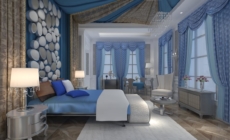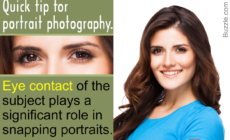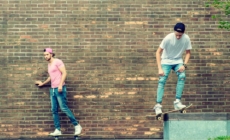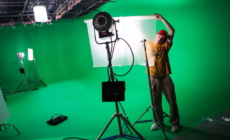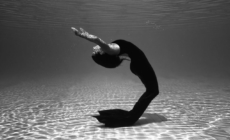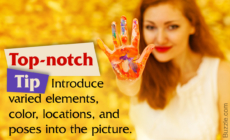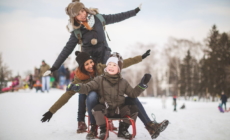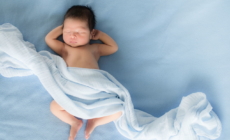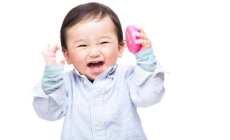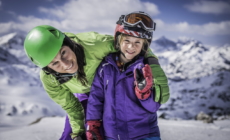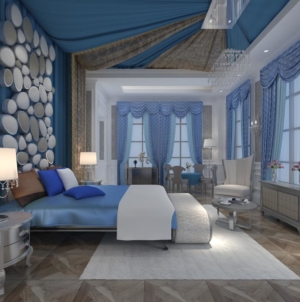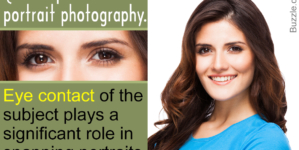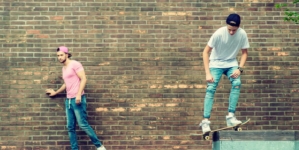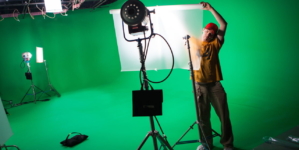-
Cool Picture Effects - September 4, 2018
-
Portrait Photography Tips That’ll Add a WOW Factor to Your Photos - September 3, 2018
-
Photography Tips for Taking Awesome Pics on Your Digital Camera - September 2, 2018
-
Fashion Photographer Salary - September 1, 2018
-
How to Set Up a Quick DIY Photo Booth in No Time - August 31, 2018
-
Do Not Miss These Tips for Shooting Stunning Black and White Photos - August 30, 2018
-
Epic Senior Picture Ideas That’ll Help You Cherish Your Memories - August 29, 2018
-
Incredibly Creative Poses for Family Photos - August 28, 2018
-
Get the Perfect Snap of Your Newborn With These Photography Ideas - August 27, 2018
-
Newborn Photography Poses That Capture the Special Moment Perfectly - August 26, 2018
Information About Studio Photography

Studio photography in itself is an extremely extensive subject and encompasses several branches. This article provides more information about the same, its types, and the equipment you will require to set yourself up in this business.
Photography takes an instant out of time, altering life by holding it still. ~ Dorothea Lange
Photography is the art of experiencing the world through the lens and essentially capturing these experiences with or without colors. This fascinating field is vast and includes several specialization areas like fashion, outdoors, nature, wildlife, still life, color, black and white photography, and so on. If you have a keen interest in studio photography and wish to pursue a career in this field, then setting up a studio is the first thing you will need to do, once you’ve completed your formal training in the subject.
The earliest reference to studio photography dates back to 1853 when noted portrait photographer Gaspard-Félix Tournachon, who was popularly known by his pseudonym Nadar, opened his portrait studio in Paris. As the techniques evolved gradually, more photographers started opening their own studios, which were essentially used to create portraits, since portraits were one of the most popular forms of photography back then. The evolution in this field sped up after this period due to the advent of color films, polarized films, effective lighting-techniques, and many more inventions.
Common Types
Studio photography is very different from outdoor photography, since a photographer cannot just walk into a studio with his camera and start shooting. There goes a lot of pre-production work in the former style. Outdoor photography is more spontaneous, where in a naturally occurring scene is captured through a camera without manipulating the lighting and other conditions. Whereas studio photography allows the photographer to create a scene and control all the elements of it starting from the lighting to the position of the subject. It is a vast genre which is extensively branched.
Portrait Photography

The creation and reproduction of photographic portraits was perhaps the first commercial use of photography. The noted French photographer André-Adolphe-Eugène Disdéri invented the process of exposing multiple images onto one negative and thus revolutionized the world of portrait photography. He was the one who popularized celebrity portraiture. Today it is a vast industry with professional and amateurs equally interested in the art.

The use of photography for advertising actually began with the advent of the technology to duplicate photographs on a large-scale and is dated back to the 1850s. Owing to the progressive printing techniques and the ability to reproduce quality photographs, it became a popular tool used in the advertising field. Although initially, it included simple photographs of models and products, the digital developments have now revolutionized the use of high-technology graphics and digital editing.
Still Life Photography

In 1826, Joseph Nicephore Niepce was the first one to capture the first permanent still life photograph. Still life photography has been extensively used in all the mass media. You can come across various magazines, newspapers, advertising brochures containing still life photography. It is a very popular form of photography and happens to be one of the branches or one of the possibilities in the studio photography arena.
Fashion Photography

This is perhaps one of the most popular branches. Although it was introduced somewhere around the 1960s or 1970s along with colored photography, it was the 80s that ushered a touch of glamor, sexuality, and eroticism in the world of fashion photography. With notable names like Helmut Newton, Guy Bourdin, and Sarah Moos, the focus shifted on the overall message and feel of the photograph rather than the fabrics and accessories of the models.
Things Required For Setting Up a Studio
In case you’re looking for a fully equipped photography studio, it is possible to get one on rent, but then again, it is nothing like possessing your own studio. The studio can either be floor-based or ceiling-based. A floor based studio light stands for the light and background support whereas in a ceiling based studio, background rollers are mounted on the ceiling and a rail system helps to adjust the positioning of lights. Here are some of the other things that you need to take care of.
Camera and Related Equipment

Based on your preferences, you will need a good camera, which is fully equipped with all the essentials and accessories. Various filters for adding effects are a must. Also make sure you have adequate supply of films and batteries. Digital studios require digital scanners, printers, and copiers, whereas a normal camera would require a proper dark room for developing and printing photographs.
Background Canvases and Props

Depending on your genre, you need to equip your studio with all the essential artwork equipment. Make sure you have a variety of backgrounds suitable for your genre. Specialized props are also a prerequisite in case you use props frequently. Make sure your studio is well equipped with all the basic facilities that people will require while working there. It is always better to have a changing room for the models.
Lights

The lighting needed depends on the camera used, and the size of subjects. The lighting style varies for portraits, still life and specialized fashion shoots.Decide the kind of work you want to take up, and get a lighting system that suits your requirements. In addition to this, you can have various types of sources like warm or cool lights based on the color temperature that you require for your photography projects. The lighting bulbs, stands, and their placement is imperative for a good pic.

